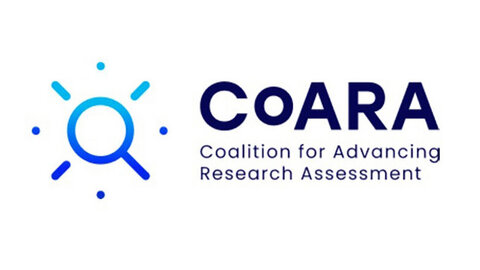Zero Emissions Awards: Pioneering Projects for a Climate-Neutral Future

The Zero Emissions Award goes to research projects that close knowledge gaps in the field of the energy transition or pursue promising new approaches. Thanks to a private donation to the FWF's alpha+ Foundation, around €900,000 can be awarded annually. The projects funded in the first round of awards have now been announced. This year’s grants were awarded to two chemists: Felix Panis from the University of Vienna for his research on wetlands as efficient CO2 stores and Thomas Rath from the Graz University of Technology for his research on organic solar cells have been awarded Austria’s highest privately funded grant for their climate-relevant basic research. The funding is based on a donation from US entrepreneur Patrick S. Dumont to the alpha+ Foundation of the Austrian Science Fund (FWF).
Zero Emissions Award Generating knowledge for a sustainable future
Georg Winckler, Chairman of the alpha+ Foundation, says, “We would like to congratulate Felix Panis and Thomas Rath on their impressive research projects and are very pleased to present them with the first Zero Emissions Awards.” He also emphasizes the importance of the Zero Emissions Award, saying, “A successful transformation of the energy system towards climate neutrality requires ideas and impetus from science and research – both of the selected projects make excellent contributions in this direction.”
“The first two projects to receive a Zero Emissions Award prove that philanthropic contributions can reach highly innovative researchers quickly and effectively to support their groundbreaking work,” says Ursula Jakubek, Deputy Chair of the alpha+ Foundation's Executive Board and FWF Executive Vice-President. “We would like to express our gratitude to Patrick Dumont, whose support makes the Zero Emissions Awards possible, and wish the researchers a successful implementation of their work,” concludes Ursula Jakubek.
“It is exciting and fascinating to see the outstanding research being carried out in Austria, especially in an area as important as combating climate change. We believe that innovative solutions are needed for the future of humanity as a whole. I would like to congratulate the first two winners of the Zero Emissions Award. Their projects are an excellent example of the diversity of possible approaches, and both have great potential. At the same time, I would also like to express my sincere thanks for the productive cooperation with the FWF, which makes this excellent research possible in the first place. It is an honor to be able to support these important areas of research and continue our family’s history in Austria through these efforts,” says Patrick S. Dumont.

Although wetlands only cover three percent of the Earth's land surface, they store more CO2 than all forests combined. Globally, one third of all carbon in soils is stored in marshlands. Due to this gigantic storage capacity, wetlands are of enormous importance in the fight against the climate crisis. For several thousand years, they have been extracting CO2 from the atmosphere and storing the carbon it contains in the form of complex organic molecules. The chemist Felix Panis is setting out to gain a better understanding of the biophysical and chemical mechanisms of marshlands and of their stability. The stability of these carbon stores is ensured by a high content of phenols, a class of chemical compounds. They block the decomposition of organic molecules, which ensures the stability of carbon stores in wetlands. Only a few highly specialized enzymes are able to break them down.
As part of his research project, Felix Panis is specifically investigating the influence of climate change on the distribution and activity of enzymes that can break down phenols, because changing climatic conditions are suspected of increasing the activity of these enzymes in wetlands. This reduces the phenol content in wetlands and increases the release of carbon, which in turn accelerates climate change. By researching the molecular mechanisms, it may be possible to develop measures that allow wetlands to continue to fulfill their role as global carbon stores.
“The natural sciences provide us with helpful tools to effectively counteract climate change. With my project, I am trying to close knowledge gaps in the field of biophysical mechanisms and use the latest methods to sustainably secure the role of wetlands as one of the most important CO2 stores,” says Felix Panis from the University of Vienna.

Photovoltaic cells made from organic compounds have a clear advantage over conventional solar cells: Lightweight, extremely thin and flexible, they offer completely new possibilities for emission-free electricity production. They also have a low CO2 footprint during production and can be manufactured on a large scale in a resource- and cost-efficient manner. In recent years, the efficiency of organic solar cells has improved to over 19%, which is mainly due to new absorber materials. This is the starting point for chemist Thomas Rath’s research project: His aim is to research the properties of halogenated absorber materials in various solar cell architectures in order to exploit the full efficiency and stability potential of organic solar cells. Using an interdisciplinary approach that includes aspects of materials chemistry and device physics as well as characterization at the nanoscale level using analytical electron microscopy, he analyzes halogen accumulation in intermediate layers, the materials, reactions, and processes involved, and their effects. The results of these investigations will help researchers better understand possible reactions under the different conditions solar cells are exposed to during operation, leading to the development of design approaches for next-generation organic absorber materials. This is expected to further increase the efficiency and improve the long-term stability of organic solar cells.
“Research into new solar cell technologies and materials can make photovoltaics, one of the most important pillars of a sustainable energy supply, even more versatile and efficient in the future. With my research project, I would like to contribute to laying the foundations for a new generation of organic solar cells,” says Thomas Rath.
Apply now for the 2025 Zero Emissions Award
Researchers from universities and non-university research institutions can submit climate-relevant research proposals for the Zero Emissions Award on an ongoing basis. Each year, €900,000 are available for research projects that focus on one of the following three areas:
- Basic research from all scientific disciplines with the potential to initiate innovations in the field of renewable energies and the energy transition
- Basic research for technologies that contribute to the success of the energy transition
- Basic research in the field of behavioral research on the use of renewable energies
The nonprofit alpha+ Foundation of the Austrian Science Fund (FWF)
The FWF was the first public research funding agency in Europe to establish a nonprofit foundation to provide Austria's researchers with more opportunities in basic research through philanthropic donations. The objective of the FWF’s alpha+ Foundation is to create new research grants based on the UN Sustainable Development Goals with a focus on addressing the climate crisis and supporting the careers of highly talented young researchers. Currently, private donations allow the FWF to finance research projects worth €1.5 million each year.
Do you want to help open a new chapter in Austrian research history?
It’s not just the large donations – smaller contributions can also make a big difference. Get in touch for an initial conversation. The board of the alpha+ Foundation looks forward to meeting you and introducing all of the available options.





